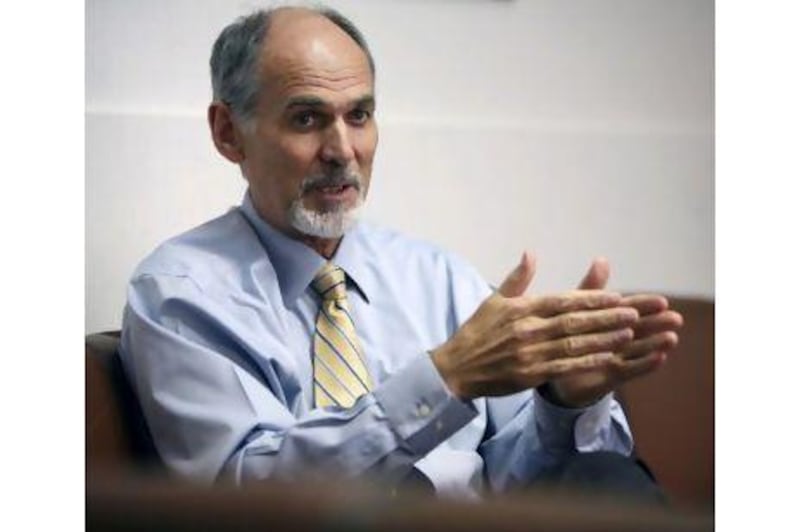ABU DHABI // Leading lights from some of the country's finest universities say the Government should trust the abilities of local health researchers rather than rely on overseas institutions.
The academics agreed that local talent had been ignored to some extent in favour of external consultants, and that more investment was needed to foster a competitive local health research industry.
Speaking at an annual research conference held by Seha, which runs public hospitals and clinics in the capital, Dr Rory Hume, the provost of UAE University (UAEU), said institutions such as the University of North Carolina (UNC) had contacted UAEU for help with projects contracted via Abu Dhabi government agencies.
"There is a lack of trust in our capability to be responsive, even though UNC, in this case, reached out to us because they did not have the proper resources," he said. "They should be coming to us first."
Prof Hosam Hamdy, the vice chancellor of medical and health sciences colleges at the University of Sharjah, agreed that local research had been overlooked.
"We should be looking at the future people of this country to become researchers," he said.
Gautam Sen, the vice provost of research and graduate studies at the American University of Sharjah - who was not at the conference - said the only way to bolster research infrastructure and generate patents was for the government to invest in a body such as the National Research Foundation (NRF).
"If the country is going to shift to a knowledge-based economy, it needs to shift its confidence to its own education system," he said.
"There is already a present body and mechanism in place, the NRF. Now there needs to be significant and consistent funding."
International health officials at the conference also noted issues facing clinical research in the country, and the region. Dr Samir Khleif, the chief of the cancer vaccine section of the US National Cancer Institute, said the region had few notable academic journals and patented applications compared with the rest of the world.
"There needs to be niche-driven research and a specialisation of institutions," he said.
Dr Hume, who has been rallying to make UAEU the nation's first research-based university, blamed a lack of external funding, which he called "one of the biggest deficiencies of this country".
"Until we have several agencies, or at least one, funding research in this country, we are fighting an uphill battle," he said.
The university, which is the oldest in the country and ranked among the top 400 in the world, awarded Dh12.5 million to its researchers last month, even as it continues to wait for funding from the NRF.
The NRF has not distributed grants it approved last year as it continues to wait for its budget to be approved. The Emirates Foundation has picked up some of the slack, distributing nearly Dh7m to researchers. The philanthropic organisation has called itself the nation's only regular research funder.
While the UAEU's research focuses on the nation's health, economic, environmental and social priorities, "the funding should influence that, and that is not happening if the money is coming from internally", Dr Hume said. "We are trying to encourage government agencies to look inside of the country first, and to be tolerant that it may take a little bit longer to get done.
"Medical education must be done in research-intensive environments, and it is essential to train young nationals. This should be the strategy for the nation."
Dr Hume also called for resources to be concentrated on behavioural sciences, which he said contributed to many of the nation's health problems such as road accidents, obesity and diabetes.
Diabetes, obesity and high blood pressure are expected to be the Health Authority Abu Dhabi's (HAAD) top health priorities for 2011, it was announced at the conference.
Tobacco use, road safety and colon and breast cancers were also proposed by Dr Eman Hassan, the senior officer of public health operations for HAAD.
The organisation had relied on data from the World Health Organisation to determine the country's needs, but was "hungry for research based on the Abu Dhabi population, which has a unique structure compared with other countries in the GCC", she said.
Seha’s top 10 research priorities
• Diabetes
• Obesity
• High blood pressure
• Tobacco use (including shisha)
• Road safety
• Colon cancer
• Breast cancer
• Mental health
• Asthma
• Osteoporosis






